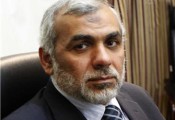Home » Egypt » Press Releases » EGY - News » Egypt: Six Muslim Brotherhood leaders arrested in Sharkiya
The following men were arrested:
- Dr Mohi Hamid
- Dr Ahmad Gaber Al-Hagg (Professor of Ear, Nose and Throat Surgery at the Faculty of Medicine of Zagazig University)
- Dr Yasser Gaber Al-Hagg (Professor of Ophthalmology, at the Faculty of Medicine of Zagazig University)
- Ahmad Shehata (a civil engineer and owner of a contracting company)
- Salah Marai (a teacher)
- Mohamed Abderrahman (an accountant)
The arrests and detention of opposition leaders has been on the rise since the parliamentary elections were held in late November 2010. The elections caused a huge frenzy, as scores of peaceful protestors and opposition group supporters were arrested.
According to sources, the six men are held on charges for which there is no evidence. The charges include: joining a banned group, attacking the personal freedoms of public citizens, damaging state institutions, and distributing leaflets and publications. These are the same charges laid against them the last time they were arrested before being released.
Although the security services referred the victims to the State Security Prosecution, the method in which they did was particularly aggressive. They were transported to Torah prison following a decision by the Prosecutor General.
According to the families of the victims, the security forces raided their homes. While searching their homes, the investigating officers damaged furniture, stole in excess of 50,000 LE (6,570EUR), confiscated computers and laptops.
Alkarama's Legal Directory, Rachid Mesli said "The State of Emergency continues to be used a by the State security establishment as a means of detaining citizens without having to investigate or establish that they are in fact a criminal."
Mesli then alluded to the case of the six political activists who were released under similar circumstances.
"Should the Prosecution General release these men, he would right a wrong." said Mesli "It is in his power to do so. Arbitrary detention is contrary to the principles of the human rights treaties and conventions signed by Egypt."
Allowing the prosecution to give ministerial and administrative orders is contrary to article 167 and 195 of the Egyptian Constitution, as well as Article 41, which protects personal freedoms. The decision to order a 15 day precautionary detention pending investigation, in this case, lacks not only legitimacy due to the fact that the detention is arbitrary, but it is also in violation of the International Convention on Civil and Political Rights, to which Egypt is party.
Alkarama requests that the Egyptian government release the detainees.
 Algeria
Algeria Bahrain
Bahrain Djibouti
Djibouti Egypt
Egypt Iraq
Iraq Palestine/Israel
Palestine/Israel Jordan
Jordan Kuwait
Kuwait Lebanon
Lebanon Libya
Libya Mauritania
Mauritania Morocco
Morocco Oman
Oman Qatar
Qatar Saudi Arabia
Saudi Arabia Sudan
Sudan Syria
Syria Tunisia
Tunisia United Arab Emirates
United Arab Emirates Yemen
Yemen Other Countries
Other Countries


